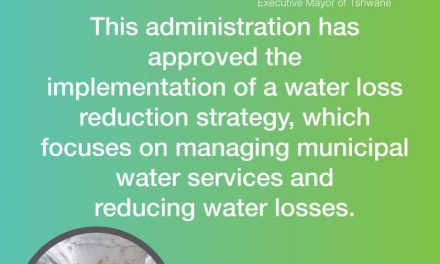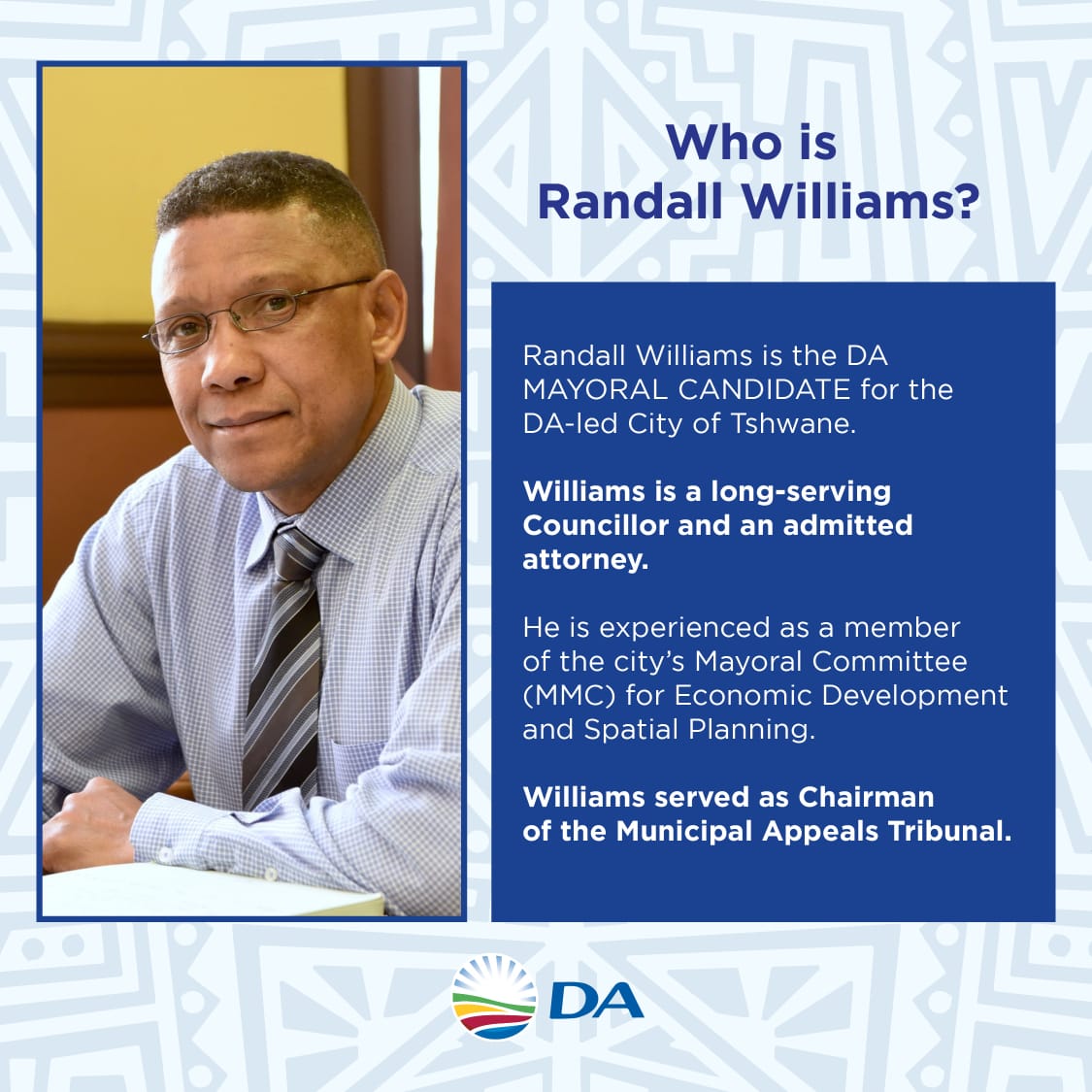“Every farmer, farm worker and rural community deserves to be safe.” Democratic Alliance
INTRODUCTION
Rural safety is an issue that affects the entire population of rural South Africa. Police stations in rural areas are usually located in such a manner that they are central to the region that they serve, but with service areas often spanning hundreds of square kilometres, effective policing of such areas is generally lacking.
Visible policing is almost impossible, as police officers are often unfamiliar with the terrain and areas in which they work. With training being more focussed towards urban crime, the South African Police Services (SAPS) do not always have the necessary skills to adequately police rural areas.
It is for this reason that the Democratic Alliance (DA) developed a viable rural safety plan to address the challenges in rural safety. This plan has been formulated in a manner that can be accommodated without legislative amendments, and that can be implemented within the parameters of existing rural safety strategies.
The DAs rural safety plan will ensure that every farmer, farm worker and rural community is guaranteed their safety and security.
Democratic Alliance
October 2019
2. PROPOSED SOLUTION
Specific rural sectors need to be created for police stations that serve a particular rural area. Any station serving a rural area must provide for at least one dedicated rural sector as part of its sector policing structure and plan. Stations that serve larger or predominantly agricultural areas will be required to divide such areas into several manageable rural policing sectors. Such sectors will have at least one regular SAPS member appointed as sector commander, in line with the current sector policing norms. This is not new to the SAPS and should, in theory, be how stations with rural service areas deal with their areas of responsibility.
With the entirety of rural South Africa now being divided into several rural sectors, these sectors will require boots on the ground to ensure visible policing as a deterrent for criminals and to function as first responders in instances where a crime has taken place. Due to the SAPS’ unnecessarily top-heavy structure and given that the ranks of those at whose feet the actual job of policing will fall being thin, the SAPS will not be able to allocate a team of officers to each rural sector. The policing strategy is also very rigid and dictated from a national or provincial level.
Rural communities and its inhabitants know the areas in which they live, with many spending their entire lives in these communities. Community policing has shown to be an effective deterrent for crime, as citizens take on the responsibility of keeping an eye out for one another. Community participation is absolutely essential in the SAPS’ fight against rural crime. National or provincial strategies and plans do not always take into consideration the specific challenges and characteristics of the different areas under its control and as a result, such plans often do not find application and ultimately fail.
To this end, the DA proposes a bottom-up approach for rural safety. National and provincial strategies will still be issued for rural safety, but specific rural safety plans will be the exclusive domain of local and district (cluster) structures. In this context “district” refers to the boundaries and feeding area of a police station.
Districts will have the capacity to determine their own rural safety plans in line with the relevant national and provincial strategies, which will except at local station level. In this way, station commanders and visible policing elements will readily be able to provide input into and ensure the adaptability of rural plans.
At local station level, Rural Community Policing Units (RCPU) will be established for every police station that serves at least one rural sector. These RCPUs will comprise of volunteers from the local community that will assist the SAPS in rural sector policing. Volunteers will join a local RCPU and will only be utilised in the rural sectors which its assigned police station serves.
Volunteers will be allowed to join based on an “each-contributing-according-to-their-ability” principle, and the objective is to ensure that no person that passes a necessary security clearance is denied the right to participate in the policing of their rural area.
Volunteers will be allowed to join in one of the following categories:
▪ RCPU Reservists
▪ RCPU Support Members (including specialists)
▪ RCPU Auxiliary Members
▪ Rural Community Volunteers
▪ Existing Community Policing Forums
2.1 RCPU Reservists
RCPU reservists will function in a similar manner as SAPS reservists currently operate. This category will set a minimum standard which prospective members will have to satisfy in order to join. Such members will undergo specialised rural policing training, firearm training and may be allowed to drive allocated SAPS vehicles. This member will be the quintessential “part-time rural policeman” and will form the backbone of a station’s RCPU capacity. These members will augment the regular duties of SAPS members in rural sectors and will be tasked as follows:
▪ Visible policing (patrols)
▪ First responders to emergency calls (both 10111 and via a proposed local Citizens Band system)
▪ Pursuit and apprehension of suspects
▪ Participation in special SAPS rural policing operations
2.2 RCPU Support Members (including specialists)
RCPU Support Members will still enlist as rural reservists but will make themselves available for one or more specific function. This category will accommodate those members of the community that wish to participate but are unable or unwilling to carry a firearm, or who may not meet the more stringent requirements of reservists. This category will also have specialists who have specific skills or expertise that may be invaluable for rural policing.
These members will fulfil special functions, such as patrol drivers, rural radio room operators and charge-office staff. They may also function alongside rural reservists in the execution of their duties, but will be limited to:
▪ Visible policing, both independent and with reservists and members of the SAPS
▪ First responders to emergency calls, but only to secure the scene pending a reservist or SAPS reaction
▪ Apprehension of suspects on the scene, with limited right of pursuit
▪ Participation in special SAPS rural policing operations
RCPU Support Members will, in certain circumstances, be allowed to enlist as specialist reservists at a district level, which is a slight departure from the station-level enlistment on which this model relies. Such members who may have proven skills and expertise in certain areas, such as pilots, divers, paramedics or drone operators, would be allowed to ply these skills under the supervision and command of the SAPS’ district rural safety units. In such circumstances, these reservist members will be allocated to a specific component of their applicable District Rural Safety Unit (DRSU).
2.3 RCPU Auxiliary Members
RCPU Auxiliary Members will also enlist as rural reservists but will have no special skills or competencies. These members will primarily operate as “boots on the ground” and will always function under the direct leadership of a rural reservist or SAPS member. These members will have the following limited duties:
▪ Visible policing in support of reservists and members of the SAPS
▪ First responders to emergency calls, but only to secure the scene pending a reservist or SAPS reaction
▪ Apprehension of suspects on the scene, with no right of pursuit
▪ Participation in special SAPS rural policing operations
2.4 Rural Community Volunteers
These members will not function or enlist as reservists but will instead function as a type of rural neighbourhood watch. These members will remain civilians and will not receive specialised training and will essentially function as the eyes and ears of the SAPS and RCPU. These volunteers will form a network with their neighbours in a manner similar to the existing SAPS CPF guidelines and will report any suspicious activity to the greater rural sector, the RCPU and the SAPS.
RCPU’s primary functions will vary in line with the needs of a specific local station or rural sector’s specific needs. These functions will be at the discretion of the visible policing commander, with the approval of the station commander and the relevant district visible policing commander, and may, subject to the needs and nature of the area served, include:
▪ Farm patrols
▪ Foot patrols or postings in isolated communities
▪ Stock theft prevention and tracking of livestock;
▪ Search and rescue
▪ Off-road and cross-country patrols
▪ Border patrols
▪ Roadblocks
2.5 Existing Community Policing Forums
For the purposes of this section, Community Policing Forums (CPFs) must also be read to include those civilian forums or groups that have not been established in line with the SAPS’s CPF-model.
An integrated community policing network is an effective deterrent for criminal activity in the area where such networks operate. These networks have proven successes, both in urban and rural areas and have taken on many forms, from farm- to neighbourhood watches. With this proposed rural safety model being so reliant on community participation, CPFs will prove to be invaluable assets in the fight against crime. These forums are often organised and equipped in a very similar manner to that which is being proposed here and have a sound relationship with their local SAPS.
This model does not seek to replace any rural CPFs that already exist but will instead seek the voluntary incorporation of these entities into the RCPU model. Our model is focussed on sector policing, which more often than not aligns with the spatial organisation of CPFs in rural areas, which means that most rural CPFs could effectively be incorporated into the RCPU structure for a specific station as a complete sector component.
These entities will only benefit from incorporation into the greater RCPU model, as they will form part of a direct reporting line with the SAPS. Integration will also bring other forms of SAPS support, such as equipment, organisational support, financial support, and an integrated rural policing strategy.
3. RURAL POLICING SUPPORT NETWORKS
Support networks are essential to the functioning of our rural safety plan and this will include:
▪ Rural CB networks and radio rooms
▪ Rural policing by drone
▪ Financial support
3.1 Rural CB radio networks and radio rooms
A crucial requirement for the functioning of RCPUs and rural sectors will be the establishment of a rural radio network for every station. This CB network will have access to a special rural safety channel only and will not have any access to official SAPS radio frequencies or channels. These CB networks will be controlled by a rural radio channel radio room, situated at station level and operated by a member of the local RCPU.
To enable the effective functioning of this network, CB radio systems will be made available to all households in rural areas. Members of a local RCPU will also be allowed to install these systems in their vehicles and to access the network by means of handheld devices to ensure that this integrated network is not limited by mobility. These systems will have to be bought but will be heavily subsidised and have an off-line battery capacity. The ideal is to ensure that every rural household is integrated into a comprehensive and accessible network for the area in which they live.
Those who have access to this system will be able to radio in suspicious activity or identify a safety risk, which will be routed through the RCPU radio room and directed to RCPU and SAPS members in the area, who will, in turn, respond to the report. This radio system can also be used for a twice-daily roll-call of all members in a particular sector, depending on how many members are present in a specific sector.
This radio network will allow distress calls to be routed directly to RCPU members without having the delay that the 10111-line is notorious for. With RCPU members having specialised knowledge of the area and even knowing the caller, response times will be cut to the absolute minimum. Off-duty members with CB access will also hear these calls and can choose to respond if the call is in close proximity.
This network will not only ensure that those in need of assistance are heard immediately but will effectively bring rural communities closer in communication with one another, the RCPU and the SAPS in respect of safety matters.
3.2 Rural policing by drone
Across the globe, policing agencies have embraced unmanned aerial vehicle (UAV) and drone technology in law enforcement. Whereas UAVs more closely resemble conventional aircraft in size and are predominantly used for military purposes, drones are not only smaller, but also cheaper, easier to maintain and operate and require less infrastructure layout to operate.
Making use of drones in policing rural areas can be a massive boon for both proactive and reactive policing. Proactively, drones not only have the ability to achieve similar conventional visible policing function objectives but can outperform conventional policing in many areas.
These devices can operate over an area for extended periods without tiring and can even be programmed to patrol and monitor certain areas automatically. Crime hotspots can be prioritised and monitored to ensure that possible instances of crime are addressed even before the crime occurs.
While a patrolling officer can be thwarted by merely waiting that they leave a specific area, not even knowing whether a drone is currently monitoring an area or not may very well deter criminals completely.
Even in spite of the proactive function of drone policing, an offence is still committed – drones will prove invaluable in the pursuit of a suspect. With the proposed integrated CB radio network putting rural residents in direct contact with local RCPU and SAPS components, information from the community can inform drone activity to the extent that suspects can be identified, pursued and pinpointed successfully long before a response unit can attend to the scene.
By equipping a drone with thermal imaging, night vision, or infrared imaging technology, it can be possible for suspects to be identified and pursued in any conditions and any time of day. Rural Policing Drone Units will make it impossible for criminals to hide anywhere in the vast expanses of the South African countryside.
Drone operators need also not be sourced from the ranks of the SAPS alone. With South Africans becoming increasingly technologically aware and capable, more digital and tech-minded individuals can join RCPUs as Support Reservists to operate drones and in this way, aid their fellow reservists and SAPS members.
While the Democratic Alliance will always acknowledge the invaluable role that SAPS members play every day in the policing of our country and would never seek to replace any officer with a machine, we also acknowledge the value that drone technology would add to the SAPS, RCPUs and other policing agencies in ensuring that rural communities are made safer.
3.3 Financial Support
Due to the challenges and sacrifices, rural policing will pose to members of the community that choose to participate in RCPU structures; it will only be fair and equitable for these members to receive financial support for their services. Due to the severe logistical problems that plague rural SAPS stations, RCPU reservists that, in line with the relevant rural policing plan and strategy, volunteer their own vehicles and equipment for rural patrols and reactions, will be reimbursed for expenses undertaken in the execution of their duties.
Rural reservists will also be entitled to a stipend for hours contributed to official RCPU purposes. The rationale behind this is rather simple. Firstly, it will provide a form of income, however small it may be, to many who have little or no economic prospects or hope in the areas where they live. This will provide a crucial contribution to the rural economy and provide many with a noble means of subsistence that would normally have eluded them.
Secondly, being paid a stipend will tip the scales in favour of the law in the countryside. South Africans are generally law-abiding people by nature. By paying reservists a stipend, many community members will be encouraged to join local policing structures. This will not only swell the ranks of local police, but it will have the added advantage of diminishing the pool from which external criminal elements can draw for their own criminal networks. Rural South Africans will no longer be compelled to partake in a life of crime to survive and will be much less receptive to those untoward elements who seek to recruit them.
Lastly, the RCPU reservist system will serve as a springboard for those who consider joining the SAPS. Reservists that wish to join the permanent ranks of the SAPS will be given preferential admission to the Service, providing members of the community with valuable career opportunities.
SAPS and RCPUs will collaborate and cooperate with existing private security services and infrastructures such as security cameras and patrols to ensure a more coordinated response to incidents.
4. SAPS STRUCTURES
It’s important that our rural safety plans fit within SAPS structures. Below is an outline of how we envision this aspect.
4.1 District Rural Safety Units
It will not be fair or sufficient to leave rural policing to local stations and civilian volunteers. Rural Safety Units (RSU) will be established in the SAPS at a district level, which will, with the exception of RCPU specialist support members, be exclusively staffed by SAPS permanent members. These units will fulfil a rapid response capability and will be trained and equipped in such a manner which best serves this purpose.
These units will also plan and execute rural safety operations, under which circumstances a unit will take over the command of all RCPUs in the area of operation. Any coordinated rural safety operations initiated from a national or provincial level will be executed by the RSUs, and it will be these units that will enjoy the cooperation of various provincial components, such as canine units, air wings and specialised mounted units.
A vital component of any rural safety plan is education. RSUs will not only be tasked with active policing but will play an essential passive and secondary function by ensuring that all rural communities in the relevant districts are educated and kept up to date on best rural safety practices. These units will also be responsible for raising awareness of the RCPU model in these communities as a tertiary function, with applications for RCPUs being sent to these units as a point of first contact.
RSUs will attend to the drafting and implementation of district-based rural safety plans, which plans will be compiled in consultation with the station commanders and visible policing heads of all stations with at least one rural sector under its command.
4.2 SAPS Provincial Rural Safety Directorate
At a provincial level, the Provincial Rural Safety Directorate (PRSD) will oversee the functioning of all RSUs as part of the provincial visible policing. The PRSD will furthermore act as the coordinating body for the training of RCPU members, which training will be facilitated at a district level.
This directorate will resort under provincial visible policing, which commander will, in turn, incorporate the PRSD into the existing provincial visible policing reporting structure, which in turn will fit into the greater national structure.
4.3 Rural Crime Intelligence Division (RCID)
To ensure that proactive policing is given as much assistance as possible, a Rural Crime Intelligence Component will be established as part of the SAPS’s Crime Intelligence Division (CID). With CID already being tasked with tracking criminal elements and reporting to the State Security Agency via the National Intelligence Co-ordinating Committee for national purposes, the establishment of a specialised rural CID component will assist in collating, processing and distributing information about rural safety.
This component will mostly function at a district level, where information will be gathered, collated and provided to best assist the functioning of RSUs and RCPUs. The crime intelligence network that will be established as part of this component’s functions will ensure that a well- established network of informants, tip-off structures and proactive action will serve to further illuminate the threats that loom over rural South Africa.
4.4 Accommodation within the existing framework
The RCPU reservist model can be accommodated without any amendments to legislation, regulation or current reservist policy. There is no reason why the SAPS should not be implementing this concept.
The only aspects of the reserve component of the SAPS that may deserve review are the qualifications and minimum requirements that are set for prospective members to join the Service. These requirements will not only limit enlistment to RCPU’s but seem to be the cause of the SAPS’s all-time low reservist participation rate. Participation in the reserve service must be broadened to enable access, not restricted to exclude those who wish to assist in the policing and safety of their communities.
5. CONCLUSION
This proposed plan seeks to ensure coordinated community-oriented policing in rural areas, by rural volunteers. This model is adaptable in nature and will place the focus on the unique challenges faced by every district, instead of having a single, uniform national or provincial plan and strategy forced upon them by a bloated SAPS command structure.
With its visible policing and “boots on the ground” focus, this model will illuminate the coverage gaps that the SAPS currently experiences in rural areas. This model will not only ensure that criminals will no longer have the luxury of committing their heinous deeds in isolated communities but will unify and strengthen these communities into a rural society that is consolidated against the criminal scourge that threatens the lives and wellbeing of all rural South Africans.
The model proposed by this document, is constitutional, can be implemented without any amendments to existing legislation, regulations or policies and will serve as an effective mechanism to combat the scourge of rural crime.















